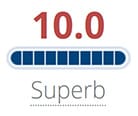Common myths about multitasking and driving in Illinois
Many distracted driving accidents are caused daily in the U.S. by drivers who wrongly believe that they can multitask effectively behind the wheel.
In Illinois and throughout the country, many drivers are injured or killed in distracted driving accidents every day. According to the Centers for Disease Control and Prevention, approximately nine people are killed and over 1,000 are injured in motor vehicle accidents involving distraction daily.
Although distracted driving-related accidents occur every day, drivers continue to text, talk on their cellphones or engage in other activities behind the wheel while driving because they believe that they can successfully handle performing two activities at once. According to a recent study conducted by AT&T, approximately three out of every 10 drivers surveyed reported that they could effectively multitask. This belief that many drivers possess in addition to several myths that surround multitasking and driving may contribute to the nationwide distracted driving problem.
The human brain is not designed to multitask
According to the National Safety Council, although many drivers think that they can simultaneously operate a vehicle and perform a separate activity, the human brain cannot multitask. For example, when a driver talks on his or her cellphone while behind the wheel of a vehicle, these two tasks involve several different areas of the brain. Instead of processing both activities at the same time, the brain rapidly switches between each.
Hands-free devices do not eliminate the dangers of distraction
Some drivers wrongly believe that talking on a cellphone using a hands-free device is significantly safer than holding their cellphone in their hand. However, cellphone conversations, regardless of whether they are handheld or hands-free, still pose a risk of serious personal injuries to drivers, passengers and pedestrians.
According to a study conducted by Carnegie Mellon University, the area of the brain that processes the movement of visual images, otherwise known as the parietal lobe, decreases in activity by 37 percent when listening to language. Additionally, the NSC states that drivers miss up to 50 percent of what is occurring in their driving environment when they talk on a cellphone.
Talking to a passenger is not the same as talking on a cellphone
In a 2008 study, researchers at the University of Utah found that drivers involved in a conversation on their cellphone are more oblivious to changing traffic conditions because they are the only ones aware of what is happening on the road. In comparison, drivers who operate a vehicle with an adult passenger have an extra person in the vehicle to alert them to dangerous driving situations. Passengers are also more likely to adjust the conversation when traffic conditions become challenging, states the NSC.
How an attorney can help
Drivers in Illinois involved in an accident caused by a distracted driver may sustain injuries that harm their ability to live a normal life. If you were harmed in an accident, speak with an attorney to find out what compensation may be available to you.
Keywords: distracted, driving, accident, injury













